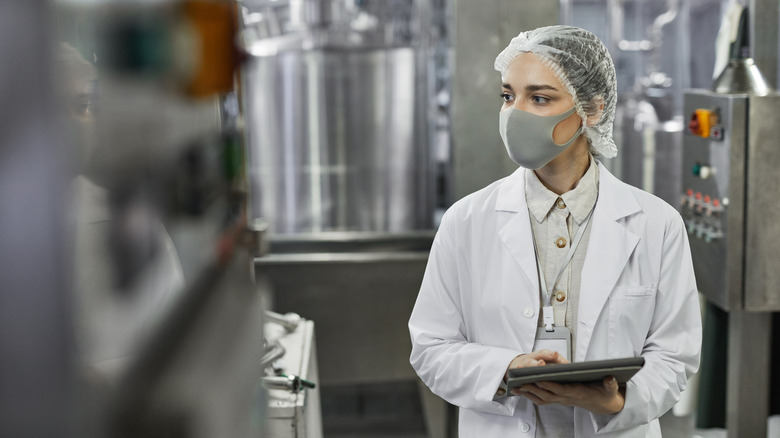How AI Can Help Deliver The Products Foodies Actually Want
Does AI know us better than we know ourselves? In an era of rapidly advancing technology, artificial intelligence has emerged as a game-changer in numerous fields, and the food industry is no exception. Traditionally, tracking consumer trends involved time-consuming market research and surveys. But as consumers' preferences continue to evolve, food companies are turning to AI to gain valuable insights into consumer trends and develop innovative food products. By mining data from social media, online reviews, and purchasing patterns, AI can identify emerging trends and preferences and try to predict future consumer behaviors.
For example, Campbell's Soup has harnessed the power of AI to drive food innovation, says Food Business News. The "insights engine program" ingested vast quantities of data, identifying a growing desire for spicier options. Thanks to the company's decision to act on these predictions, customers can now grab a can of Spicy Chicken Noodle Soup, Spicy Sirloin Burger Soup, and even Chunky Ghost Pepper Chicken Soup, among other piquant options.
History of AI innovation
While it seems this technology only hit the scene recently, thanks to the explosion of AI-powered platforms like ChatGPT, it has been used for years in the food industry. According to Food Industry Dive, the spice and seasoning giant McCormick & Co. has worked with IBM since 2019, using AI to quickly sort through its 40 years of consumer data and roughly 4,000 ingredient database to quickly create new flavor combinations with a high probability of market success. While human oversight is required in this process, AI-powered suggestions can help researchers overcome taste biases, such as the tendency to repeatedly draw from a limited palette of flavors. AI can see pairings that might have otherwise been unapparent.
It should be said, however, that AI is succeeding partly because it's being graded on such a shallow curve; research from the Institute of Food Technologists shows "a staggering 80% of food product launches fail." The dollars lost trying to divine what will drive a consumer towards an item make the pivot to AI understandable. While traditional consumer tests can be persuasive, the analysis of AI can make a valuable difference in mitigating failure.
However, AI is not a replacement for the human role in food innovation. Speaking with Just Food, Mondelez International Vice President of Global Consumer Science says the company uses "AI to 'supercharge our developers.'" Simply put, AI is another tool geared towards lightning-fast data analysis that can help focus innovation.

